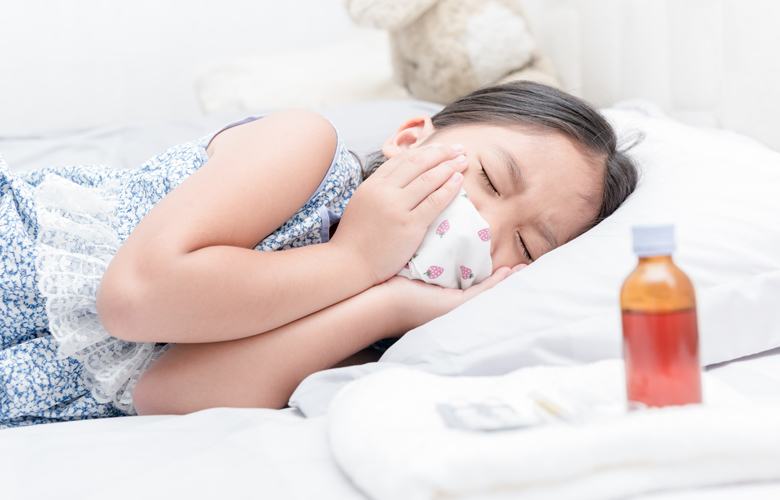
手足口病(HFMD)是一种在幼儿中常见的高度传染性病毒感染。其特征是口腔溃疡和手脚上的皮疹,由一组肠道病毒引起,通常被称为柯萨奇病毒。这些病毒通过直接人际接触、鼻液、唾液、粪便以及感染者皮疹的液体传播。
HFMD主要影响10岁以下的儿童,尤其是5岁以下的儿童。这些年龄段的儿童更容易受到影响,因为他们的免疫力较低,且有把手放入口中的倾向。与患病儿童密切接触的照顾者也有感染的风险。
为什么我的孩子更容易受到感染?
大多数父母将他们的孩子送到婴儿护理中心、托儿所和学前教育中心,孩子们在这里与朋友一起玩耍、学习和社交。共享公共设施、书籍甚至玩具使他们更容易受到高度传染性的HFMD影响。由于许多儿童参加此类护理中心,HFMD可能会迅速传播。尽管HFMD在新加坡全年都有发生,但每年3月至5月期间观察到感染率的激增。2018年,卫生部报告称,从7月29日至8月4日的一周内,HFMD共报告了1,249例病例,比2017年同期高出一倍半。
要注意哪些症状?
谭振汉医生表示:“随着HFMD的流行,建议父母、照顾者和老师每天密切关注并检查他们的孩子或学生是否出现以下症状:
- 发热
- 喉咙痛
- 倦怠
- 喉咙、舌头和口腔溃疡
- 手掌、脚底和臀部出现皮疹或小水疱。它们也可能出现在口周围、肘部、膝盖和生殖区域
- 食欲不振
- 呕吐和/或腹泻”
症状可能有所不同,并可能在疾病的不同阶段出现。潜伏期,即暴露于病毒到出现第一个症状之间的时间通常为三至五天。
当我的孩子患上HFMD时该怎么办?
一旦您的孩子出现HFMD症状,立即咨询医生。虽然HFMD没有特定的治疗方法,但可以给孩子进行症状性治疗以控制发热和疼痛的口腔溃疡。
例如:
- 让您的孩子食用软食,如粥或燕麦片,以减轻吞咽疼痛
- 给孩子喝大量液体,如水、稀释果汁、米水或薏米水,以防止脱水
- 给孩子冰棒,暂时缓解口腔区域疼痛的水疱
非常重要的是,立即通知您孩子的学校或托儿中心,并让患病的孩子远离公共场所。您还应该保持良好的卫生习惯,以保护您的家人并防止病毒传播。
如何知道我的孩子是否完全康复?
在大多数情况下,感染会在七到十天内自行消失。只有某些类型的肠道病毒,如肠道病毒71型,可能引起涉及心脏和神经系统的严重并发症,甚至可能导致死亡。
何时应立即就医?
如果症状持续或恶化超过7-10天,请及时向医生复诊。更重要的是,如果您的孩子抱怨或出现以下症状,请立即就医:
- 口腔摄入液体不足
- 脱水表现为尿量减少、嘴唇和/或舌头干燥,哭泣时没有眼泪
- 异常行为,如倦怠、昏昏欲睡或烦躁,或持续哭泣
- 突发头痛、颈部僵硬或疼痛
- 呼吸困难
如何保护孩子免受HFMD?
目前没有预防HFMD的疫苗,但您可以通过密切监视孩子并教导他们良好的卫生习惯来防止HFMD传播,例如:
- 正确经常地用肥皂洗手,尤其是在进食前和使用厕所后
- 咳嗽或打喷嚏时用纸巾遮住口鼻
- 感觉不适时戴口罩
- 不分享食物、饮料、餐具、牙刷或毛巾
- 不将玩具或其他共享物品放入口中
您可以成为孩子的良好榜样,通过实践这些习惯。此外,要勤于彻底清洁和消毒公共区域、玩具和器具。




